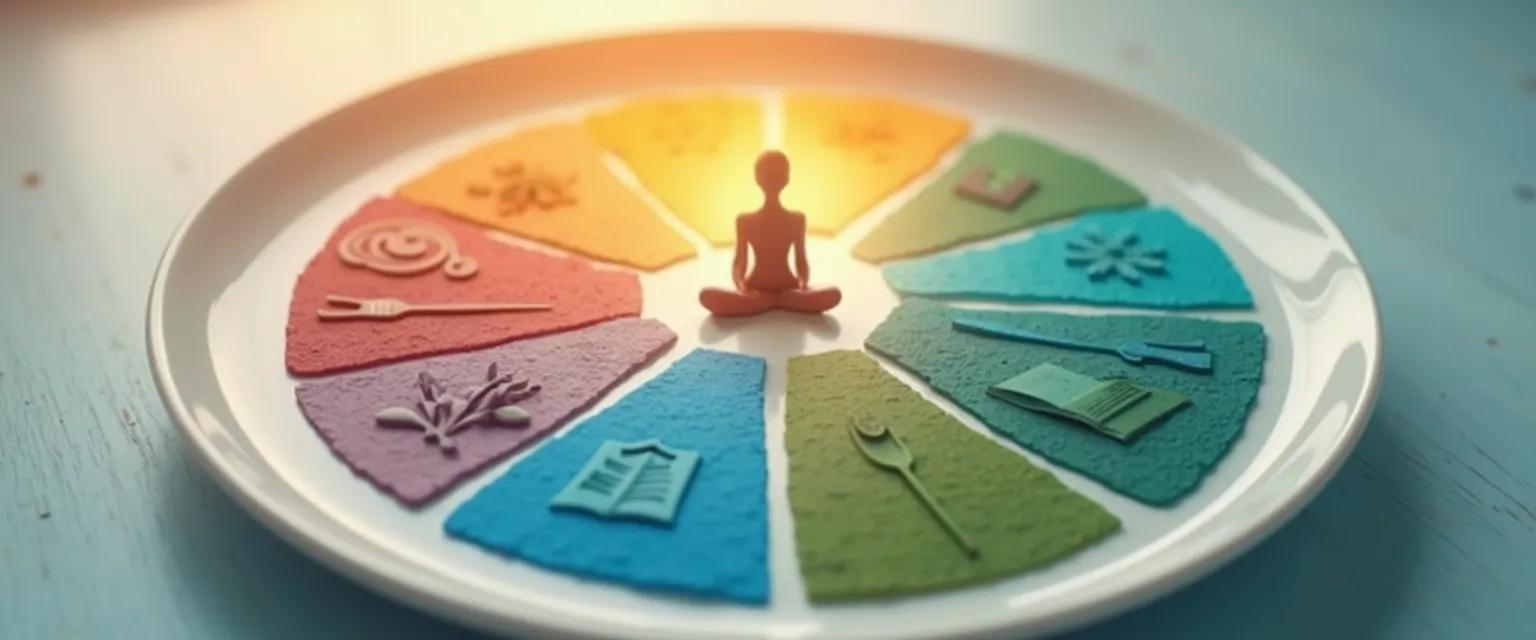The Healthy Mind Platter: 7 Essential Elements to Balance Your Mental Diet
Ever feel like your brain is running on empty despite a packed schedule? You might be missing some essential nutrients in your mental diet. The healthy mind platter, developed by neuropsychiatrist Dr. Dan Siegel, offers a revolutionary framework for balanced brain health. Just as our bodies need varied nutrition, our minds require seven distinct types of mental activities to function optimally. This concept provides a practical approach to mental wellness that goes beyond traditional self-care advice.
The healthy mind platter isn't just another wellness trend—it's backed by neuroscience. Research shows that incorporating these seven elements helps strengthen neural pathways, improve emotional regulation, and enhance overall brain function. Think of it as a daily mental nutrition plan that ensures you're feeding your brain exactly what it needs to thrive in our demanding world.
Many of us unknowingly create imbalances in our mental diet, overloading on certain activities while neglecting others. Learning to balance your healthy mind platter leads to improved focus, creativity, and emotional resilience. Let's explore what makes this approach so effective.
The 7 Essential Elements of the Healthy Mind Platter Explained
The healthy mind platter divides our mental nutrition into seven distinct categories, each serving a unique purpose in brain health:
1. Focus Time
This element involves concentration on tasks that challenge your brain, strengthening neural connections. Examples include deep work sessions, learning new skills, or solving complex problems. Just 25-minute focused blocks can significantly enhance brain function and productivity techniques.
2. Play Time
Engaging in spontaneous, creative activities allows your brain to make new connections. This might include games, artistic expression, or simply being silly. Play reduces stress while enhancing problem-solving abilities—exactly why it's a core healthy mind platter component.
3. Connecting Time
Social interaction activates the brain's relational circuitry. Whether in-person or virtual, meaningful connections with others release positive neurochemicals that boost mood and cognitive function. Quality conversations, shared activities, and even brief positive interactions contribute to this element.
4. Physical Time
Movement strengthens the brain-body connection through activities like walking, dancing, or structured exercise. Physical activity increases blood flow to the brain, promoting neurogenesis (the growth of new brain cells) and enhancing cognitive abilities.
5. Time In
This reflective practice involves turning attention inward through meditation, mindfulness, or simply paying attention to your thoughts and feelings. Regular "time in" practices improve anxiety management strategies and self-awareness.
6. Down Time
Non-focused activities allow your brain to recharge. Relaxing without purpose—watching clouds, listening to music, or simply daydreaming—activates the default mode network, which plays a crucial role in creativity and memory consolidation.
7. Sleep Time
Quality rest consolidates learning and restores brain function. During sleep, your brain processes information, forms memories, and clears toxins. Without adequate sleep, the other elements of the healthy mind platter become less effective.
Creating Your Personal Healthy Mind Platter Balance
Implementing the healthy mind platter in your life doesn't require dramatic changes. Start by assessing your current mental diet: Which elements are you getting plenty of, and which might be lacking? Most people discover they're overloaded in some areas (often focus time) while deficient in others (typically play time and down time).
Try these simple strategies to balance your mental diet:
- Schedule small blocks for each element throughout your week
- Combine elements when appropriate (physical time can double as connecting time during a walk with a friend)
- Start with just 10 minutes of your most neglected element daily
- Use visual reminders of the healthy mind platter to stay mindful of your mental diet
Remember that your healthy mind platter balance will look different from others. Someone with a creativity-focused career might need more play time, while those in high-stress environments might benefit from additional down time. The key is finding your personal balance.
Neuroscience confirms that this balanced approach leads to improved emotional regulation. When all seven elements are present in appropriate amounts, your brain develops greater resilience to stress and enhanced cognitive flexibility.
The healthy mind platter provides a practical framework for mental wellness that's both simple and profound. By intentionally incorporating these seven essential elements into your daily routine, you're not just improving your present mental state—you're building a healthier brain for the future. Ready to serve up a more balanced mental diet? Your healthy mind platter awaits.




